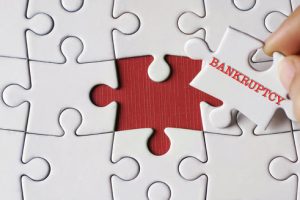7 Bankruptcy Exemptions in an Illinois Chapter 7

Somewhere along the line, Chapter 7 picked up the unfortunate nickname “liquidation bankruptcy.” That label implies Chapter 7 debtors lose most or all of their assets to their creditors. That’s simply not true, at least in the vast majority of cases.
Chapter 7 is really about a fresh financial start. You cannot get a fresh start if you lose your stuff. You’d go back behind the starting line. So, a number of exemptions are available. And, a good Chicago Chapter 7 bankruptcy lawyer knows how to maximize these exemptions.
Retirement Account
In many situations, a retirement account is the largest liquid asset in a family. Typically, retirement accounts have an emotional value which may eclipse their financial value. No matter how much money is in your 401(k), traditional IRA, Roth IRA, or other retirement account, the entire thing is exempt. Your creditors cannot touch a penny of it in bankruptcy.
House
A home is usually a family’s largest overall asset. Under Illinois law, up to $30,000 of home equity is exempt in bankruptcy for people who file jointly. In many cases, the exemption may be larger. For example, if a married couple owns a house through a tenancy of the entirety, all the equity may be exempt. Additionally, there is usually a difference between a home’s fair market value and a home’s bankruptcy sale value. That difference could protect more home equity.
Wildcard
Illinois law allows bankruptcy debtors to exempt up to $4,000 of otherwise nonexempt property. Some people use the wildcard exemption to bolster an existing amount-based exemption, like the motor vehicle exemption (discussed below) or the homestead exemption. Other debtors play the wildcard separately to protect things like money in a savings account.
Motor Vehicle
Cars and trucks worth up to $2,400, or with that much equity, are exempt. If you drive a new car, it probably has considerable value but almost no equity. So, the trustee (person who oversees the bankruptcy for the judge) cannot seize the vehicle and sell it. The same thing applies if you have a used car. These vehicles usually have considerable equity but almost no value.
Personal Property
This category includes more than just household furniture and keepsakes. It also includes valuable electronics, most college savings or prepaid college tuition plans, and personal injury settlements.
Public Benefits
Even if they look like wage income, things like Social Security benefits are always exempt assets and always 100 percent protected. Both the bankruptcy court and the Social Security Administration view these benefits in this way. However, the trustee may ask questions if you commingled your government benefits with wage income. It’s usually best to keep income and assets in separate accounts. These same rules apply to workers’ compensation and other kinds of public assistance benefits.
Insurance Policies
Many insurance policies have substantial cash value. Even if that’s the case, they are exempt under Illinois bankruptcy law. This exemption applies to life insurance policies as well as most dependent health insurance policies. Bankruptcy does not interrupt your coverage as long as you keep paying any required premiums.
Contact Savvy Lawyers
Bankruptcy is a good way to get out of debt and retain your assets. For a free consultation with an experienced bankruptcy attorney in Chicago, contact the Bentz Holguin Law Firm, LLC. We routinely handle matters in Illinois and Indiana.
Resource:
uscourts.gov/services-forms/bankruptcy/bankruptcy-basics/chapter-7-bankruptcy-basics


